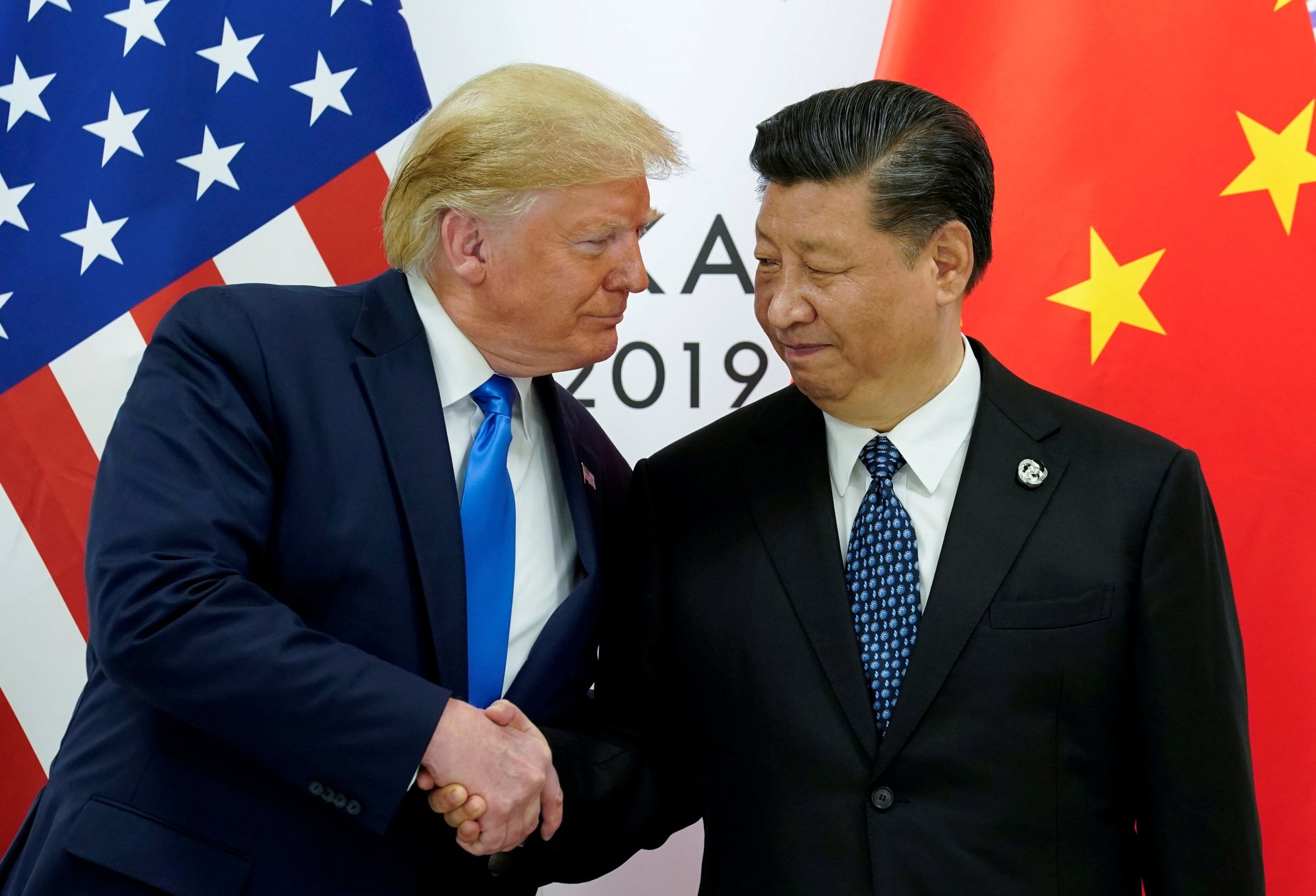No one quite understands what Donald Trump is saying about Hong Kong
All of a sudden, the US president seems to be taking an active interest in what’s happening on the streets of Hong Kong.


All of a sudden, the US president seems to be taking an active interest in what’s happening on the streets of Hong Kong.
Just two weeks ago, Donald Trump made clear that he wanted nothing to do with the city’s ongoing political crisis. Echoing the Communist Party’s rhetoric, he referred to the protests as “riots,” even though they have been overwhelmingly peaceful. The political crisis is “between Hong Kong and… China,” he told reporters at the White House. “They don’t need advice.”
But in a series of tweets yesterday (Aug. 14) night, Trump appeared to change tack. Praising Chinese president Xi Jinping as a “great leader” and a “good man,” he seemed to suggest that a trade deal to resolve the long-running US-China trade war would be on the table if Beijing can “work humanely with Hong Kong first.” He then offered to meet personally with Xi.
Earlier in the afternoon, he had sounded a triumphant note about America’s position in the trade war, mentioning off-hand that “Hong Kong is not helping” China. The last time Trump tweeted about Hong Kong seems to have been during the 2014 Umbrella Movement, when he called on then-president Barack Obama to “stay out of the Hong Kong protests.“
Trump’s tweets add to the confusion in messaging from the White House in recent days, with secretary of commerce Wilbur Ross saying that Hong Kong protests are an “internal matter.”
However, there is a growing chorus of support for Hong Kong from Congress.
Democratic speaker of the House Nancy Pelosi yesterday issued a statement criticizing the “escalating violence” against protesters in Hong Kong as “extremely alarming.” She pledged to rally support for the Hong Kong Human Rights and Democracy Act, which was reintroduced in June and would require the US to assess annually the level of autonomy in the city and whether it should continue enjoying its special trade status.
Other politicians who have added their voices into the mix include senator Marco Rubio of Florida, who called the Hong Kong government “vicious authoritarians.” Senators Ben Cardin of Maryland, Jim Risch of Idaho, Bob Mendenez of New Jersey, Elizabeth Warren of Massachusetts, Senate Majority Leader Mitch McConnell of Kentucky, and Cory Gardner of Colorado have similarly expressed their support for the protesters.
The House foreign affairs committee also issued a statement yesterday (Aug. 14) that reiterated the State Department’s earlier characterization of China as a “thuggish regime,” and warned of “universal condemnation and swift consequences” if Beijing were to carry out a military intervention in Hong Kong.
As the drumbeat of a potential People’s Liberation Army incursion has grown in recent days, so too has the number of global leaders issuing statements of concern.
On Tuesday (Aug 13), Australian prime minister Scott Morrison rejected Beijing’s description of the Hong Kong protests as showing “signs of terrorism,” and called on chief executive Carrie Lam to work towards a “peaceful and calm” resolution of the crisis. Similarly, German chancellor Angela Merkel and French foreign minister Jean-Yves Le Drian both separately called for dialogue between the Hong Kong government and protesters. And on Monday (Aug. 12), Canadian prime minister Justin Trudeau said that he was “extremely concerned” about events in Hong Kong and urged the city’s government to address the “legitimate concerns” of citizens.